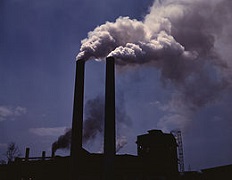Boiler Upgrade Grant
ICAX welcomes the Boiler Upgrade Grant. A grant is a better way to support owners who face up-front costs on moving to clean heating systems – and a single payment is administratively simpler (and much cheaper) than 28 payments spread over seven years (as offered by the old RHI).
However, the low level of grant proposed of only £5,000 for an ASHP (and £6,000 for a GSHP) is too low to encourage homeowners to move to clean heating. The Government needs to acknowledge that a homeowner who considers a clean heating mechanism is facing a private cost to provide a public benefit.
The Boiler Upgrade Grant funding is limited to just £450m. This lack of clarity and lack of ambition will provide no certainty for businesses proposing to serve the market.
The limited level of the grant will point households to the cheapest technologies. £5,000 is not enough to encourage investment in a £10,000 air source heat pump system for a small house.
£6,000 for a ground source heat pump will only amount to a small contribution towards a £16,000 investment in a ground source heat pump system. The government should be encouraging investment in enduring infrastructure like ground source systems because they are inherently more efficient and because a key part of the investment is in a ground array that will last for over 100 years. The national interest is to encourage investment in long term solutions. Investment in ground source will create green jobs in the UK, but investment in air source will encourage spending on air source heat pumps which are largely imported.
A grant of only £5,000 focusses the grant on small houses (whose owners may not be able to afford any investment in low carbon energy). If the Government is serious about achieving a significant reduction on emissions from houses, it should be focussing on larger houses which currently issue larger emissions of CO2. Owners of larger homes are more likely to have the funds to invest in clean heat, but are unlikely to do so if the grant is aimed at smaller houses. There is a strong case for government to provide a grant towards ground arrays because this will encourage greater energy efficiency and greater CO2 saving.
Investment in low carbon technologies, like heat pumps, is a private investment for a public benefit. Until the Treasury accepts that public money is needed to encourage the public benefit of lower carbon emissions very few heat pumps will be installed, the skills shortage will remain and the supply chain will continue to be underdeveloped. There will be very few green jobs created in the UK by the current limited proposal.
The Climate Change Committee has recommended that, "The 29 million existing homes across the UK must be made low-carbon, low-energy and resilient to a changing climate. This is a UK infrastructure priority and should be supported by HM Treasury. Homes should use low-carbon sources of heating such as heat pumps and heat networks".
Financial barriers to installing clean heat
The Boiler Upgrade Grant, although small, will reduce the up-front cost of installing clean heating. The government has also reduced the VAT to 0% on the cost of installation of energy saving materials, including heat pumps. However, the Treasury still levies an illogical 25% "environmental charge" on the electricity needed to run a heat pump, but only 2.5% on the gas used by a gas boiler. The government needs to address this anomaly if it is to achieve its stated ambition of seeing 600,000 heat pumps installed each year by 2028.
Nothing replaces the Commercial RHI from April 2022
Previously the government had announced an allocation of funding for the non-domestic RHI up until 31 March 2021. From the Treasury Red Book issued on the day of the budget on 11 March 2020, the government said it "will also introduce a new allocation of flexible tariff guarantees to the Non-Domestic RHI in Great Britain in March 2021, helping to provide investment certainty for the larger and more cost-effective renewable heat projects". The previous two tariff guarantee allocations did cover ground and water source heat pumps over 100kW capacity. The new tariff guarantees will only allow the RHI for large installations, but they must be commissioned before 31 March 2022.
It appears that the government has no plans to encourage low carbon commercial heating after the end of the RHI, unless they are linked to district heating systems!
Government needs to respond to the widespread calls for action to curb climate change
All UK political parties express concern about climate change, but seem vague about what should be done to curb it.
The Climate Change Committee has been very clear that, "The 29 million existing homes across the UK must be made low-carbon, low-energy and resilient to a changing climate. This is a UK infrastructure priority and should be supported by HM Treasury. Homes should use low-carbon sources of heating such as heat pumps and heat networks"
Real progress has been made in decarbonising electricity
Real progress has been made in decarbonising electricity generation: this has been achieved largely by curbing electric generation from the combustion of coal and encouraging generation from wind turbines.
No progress has been made in decarbonising heating
Almost no progress has been made in decarbonising heating: almost 84% of homes are still heated by combustion of gas supplied through the national gas grid.
The hopes expressed in the government's Ten Point Plan need to be translated into practical measures – or the Clean Heat Grant will be no more effective in moving the UK towards Net Zero than the Green Homes Grant or the "Renewable Heat Incentive".
As CO2 is emitted from combustion of all carbon compounds, the answer to curbing climate change lies in using heating systems which do not use combustion. The alternative is heat transfer which means using heat pumps to transfer heat from the ground – or from the air – to heat buildings. This is the only practical route to achieving the Clean Growth Strategy.
It is also the only practical route to achieving the Clean Air Strategy in cities like London.

NOxious emissions
There have been suggestions that an alternative to burning gas for low carbon heating would be to pipe hydrogen through the gas grid and burn hydrogen instead.
Although there are many practical issues to be solved before burning hydrogen from the gas grid would be possible, the key difficulty is that burning hydrogen in air would yield up to six times the amount of NOx as burning natural gas in air.
See Ten reasons for the UK to use ground source energy to reduce carbon emissions.
See Ground Source Heating See Ground Source Cooling See Ground Source Energy

